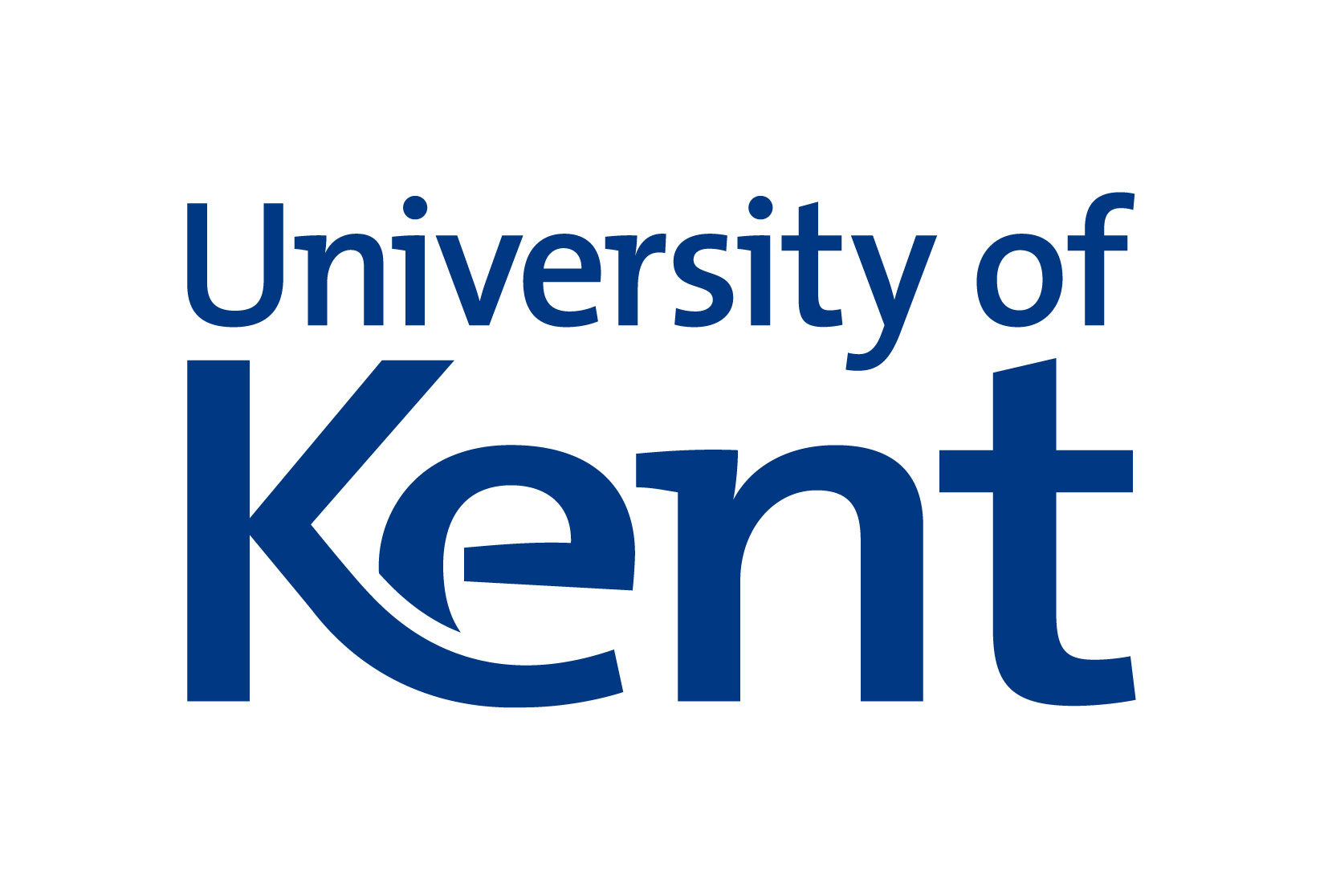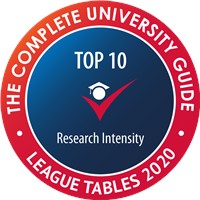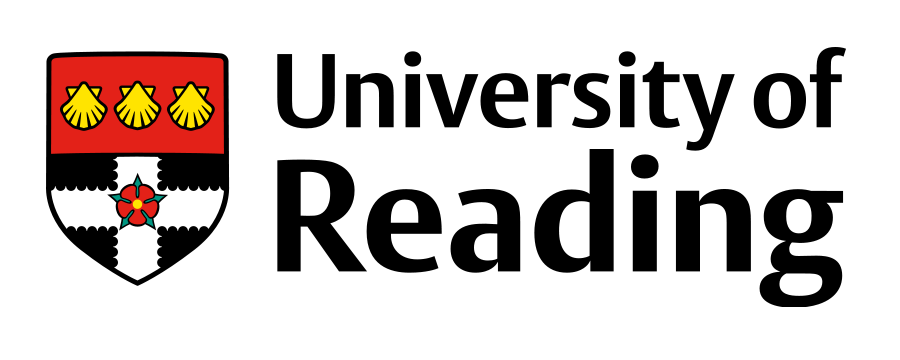
Information
£13,260 per year
The management of species, habitats and ecosystems is increasingly drawing upon principles and practices from other disciplines, such as business, marketing and human resources.
The MSc in Conservation Project Management draws upon the extensive conservation project management experience of Durrell Wildlife Conservation Trust and equips you with the skills and tools you need to manage conservation projects effectively. The pathway is particularly suitable for managers of conservation projects who wish to build on their existing skills, or conservation practitioners who wish to move into a project management role. You spend time at the International Training Centre at Durrell Wildlife Conservation Trust in Jersey.
 Queen’s Anniversary Prize
Queen’s Anniversary Prize
The University of Kent was awarded a highly prestigious Queen’s Anniversary Prize for Higher and Further Education for the work of the Durrell Institute of Conservation and Ecology (DICE).
DICE leads projects in over 50 countries, including research on human wellbeing and nature, human-elephant conflict, oil palm deforestation, online illegal trade in protected species, national park planning and ecotourism projects and the mapping of biodiversity through eDNA.
Why study with us?
- One-year taught Master’s programme
- Teaching which integratesnatural and social sciences
- Lecturers are research active, world-leading academics with practical experience of conservation project management in locations across the world
- Tailored courses in leadership and facilitation skills delivered by staff experienced in project managment within conservation
- Teaching with integratesnatural and social sciences
- Formal lectures and seminars supported by residential courses and day trips including to the Wildfowl & Wetlands Trust, Slimbridge, the Durrell Wildlife Conservation Trust, Jersey, previous fieldtrips have also taken place in Scotland and Malta (these change annually)
About The Durrell Institute of Conservation and Ecology (DICE)
Conservation programmes offered by the School of Anthropology and Conservation are delivered by members of DICE.
DICE is Britain’s leading research centre dedicated to conserving biodiversity and the ecological processes that support ecosystems and people. It pursues innovative and cutting-edge research to develop the knowledge that underpins conservation, and sets itself apart from more traditionally-minded academic institutions with its clear aims to:
- Break down the barriers between the natural and social sciences in conservation
- Conduct research that informs and improves policy and practice in all relevant sectors
- Disseminate knowledge and provide expertise on conservation issues to stakeholders
- Build capacity in the conservation sector through research-led teaching and training
- Strive for sustainable livelihoods and biodiversity conservation that benefits people
Our staff have outstanding international research profiles, yet integrate this with considerable on-the-ground experience working with conservation agencies around the world. This combination of expertise ensures that our programmes deliver the skills and knowledge that are essential components of conservation implementation.
Entry requirements
A good second class honours degree, or better, in a relevant subject; a good honours degree in other subjects together with relevant practical experience.
In exceptional circumstances, DICE admits applicants without a first degree if their professional career and experience shows academic achievement of a high enough standard.
All applicants are considered on an individual basis and additional qualifications, professional qualifications and relevant experience may also be taken into account when considering applications.
International students
Please see our International Student website for entry requirements by country and other relevant information. Please note that international fee-paying students cannot undertake a part-time programme due to visa restrictions.
English language entry requirements
The University requires all non-native speakers of English to reach a minimum standard of proficiency in written and spoken English before beginning a postgraduate degree. Certain subjects require a higher level.
For detailed information see our English language requirements web pages.
Need help with English?
Please note that if you are required to meet an English language condition, we offer a number of pre-sessional courses in English for Academic Purposes through Kent International Pathways.
Course structure
Duration: One year full-time, two years part-time
The MSc consists of six months of coursework and five months of research. The optional modules allow you the flexibility to devise a pathway that suits your specific interests, with an appropriate balance between natural and social sciences.
Modules
Please note that not all modules necessarily run every year. Please contact the School for more detailed information on availability.
Compulsory modules currently include
DI1001 – Multidisciplinary Perspectives on Conservation (15 credits)
DI876 – Research Methods for Social Science (15 credits)
DI884 – Research Skills for Natural Sciences (15 credits)
DI889 – Leadership Skills for Conservation Managers (15 credits)
Optional modules may include
SE993 – Advanced Topics in Primate Behaviour (15 credits)
DI885 – Ecotourism and Rural Development Field Course (15 credits)
DI888 – Economics of Biodiversity Conservation (15 credits)
DI877 – Population and Evolutionary Biology (15 credits)
DI883 – Special Topics in Conservation (15 credits)
DI836 – Integrated Species Conservation and Management (15 credits)
DI841 – Managing Protected Areas (15 credits)
DI849 – Principles of Geographic Information Systems (GIS) and Remote Sensing (15 credits)
DI871 – International Wildlife Trade – Achieving Sustainability (15 credits)
Compulsory modules currently include
DI998 – Dissertation – Conservation (60 credits)
Teaching and assessment
Assessment is carried out primarily through coursework with written examinations for some modules. The research dissertation is written up in the format of a paper for publication.
Programme aims
This programme aims to:
- produce postgraduates equipped to play leading roles in the field of international conservation and biodiversity management
- develop new areas of teaching in response to the advance of scholarship and practice
- provide you with opportunities to gain a interdisciplinary perspective on conservation issues through collaborative exchange between DICE and the wider University
- develop your competence in applying theoretical and methodological skills to the implementation of conservation practice and biodiversity management
- develop your critical and analytical powers in relation to policy formulation and data analysis and interpretation
- provide you with the skills to adapt and respond positively to change
- develop critical, analytical problem-based learning skills and the transferable skills necessary for professional development
- enhance the development of your interpersonal skills
- assist you to develop the skills required for both autonomous practice and team-working.
Learning outcomes
Knowledge and understanding
You will gain knowledge and understanding of:
- fundamental ecological concepts and how they apply to conservation biology and biodiversity management
- conservation at the species, population, community and ecosystem levels
- fundamental social science perspectives on conservation, and the principles of interdisciplinarity
- principles and significance of resource economics
- biodiversity law, policy and legislative frameworks
- principles and practice involved with sustainable resource use
- principles and practice involved with managing protected areas for conservation
- principles of conservation research design, implementation and analysis, including problem-led interdisciplinary approaches
- principles and practice in conservation, business and rural development.
Intellectual skills
You develop intellectual skills in:
- the ability to marshal ideas and examples into well-organised written and oral presentations
- critical analysis of case studies
- reflective evaluation of theoretical and methodological frameworks
- design, implementation, analysis and write-up of a substantial research project (your Master’s dissertation)
- linking theory to practice in conservation science and social science.
Subject-specific skills
You gain subject-specific skills in:
- field biology skills
- social science methodologies
- experimental design and statistics
- methodologies for analysing and appraising conservation case studies
- population assessment and assessment of threat status
- methodologies for estimating sustainable wildlife management
- methodologies for protected areas management and planning.
Transferable skills
You will gain the following transferable skills:
- IT: Word, Excel, statistical and modelling programmes, email, bibliographic and web searches
- presentation skills
- writing reports and funding proposals
- time management
- using a library
- working in groups
- the skills to exercise initiative and personal responsibility
- independent learning skills required for continuing professional development.
Fees
The 2020/21 annual tuition fees for this programme are:
- Home/EU full-time: £13,260
- International full-time: £20,900
- Home/EU part-time: £6,630
- International part-time: £10,450
For details of when and how to pay fees and charges, please see our Student Finance Guide.
For students continuing on this programme fees will increase year on year by no more than RPI + 3% in each academic year of study except where regulated.* If you are uncertain about your fee status please contact information@kent.ac.uk
Additional costs
General additional costs
Find out more about general additional costs that you may pay when studying at Kent.
Funding
Search our scholarships finder for possible funding opportunities. You may find it helpful to look at both:
- University and external funds
- Scholarships specific to the academic school delivering this programme.
 The Complete University Guide
The Complete University Guide
In The Complete University Guide 2020, the University of Kent was ranked in the top 10 for research intensity. This is a measure of the proportion of staff involved in high-quality research in the university.
Please see the University League Tables 2020 for more information.
Independent rankings
In the Research Excellence Framework (REF) 2014, research by the School of Anthropology and Conservation was ranked 10th for research power and in the top 20 in the UK for research impact and research power.
An impressive 94% of our research was judged to be of international quality and the School’s environment was judged to be conducive to supporting the development of world-leading research.
Research areas
Dynamic publishing culture
Staff publish regularly and widely in peer-reviewed journals, conference proceedings and books. Articles have recently been published in prestigious periodicals including: Nature; Science; Biological Conservation; Conservation Biology; Conservation Letters; Journal of Applied Ecology; Proceedings of the National Academy of Sciences; Ecological Economics and Human Ecology.
Worldwide research
Recent or current projects cover topics such as:
- Ecology of flagship Amazonian species – red Uakari monkeys and giant river otters
- Monitoring population trends in tigers and their prey in Kirinci Seblat National Park, Sumatra
- Chameleon trade and conservation in Madagascar
- Global biodiversity hotspots and extinction risk
- Conservation genetics of the critically endangered Seychelles paradise flycatcher
- Traditional knowledge, intellectual property rights and protected area management
- Collaborative wildlife management and changing social contexts in Amazonian Peru
- The economic value of mammals in Britain
- Estimating extinction dates of plants, birds and mammals
- Habitat loss and fragmentation at different scales across Europe
- Mapping the Falklands: facilitating systematic conservation planning and implementation.
Staff research interests
Full details of staff research interests can be found on the School’s website.
Dr Peter Bennett : Reader in Biodiversity and Evolutionary Ecology
Evolution, ecology and conservation of birds; biodiversity hotspots; life history evolution and extinction risk; marine mammals; wildlife disease.
Dr Richard Bodmer : Reader in Conservation Ecology
Population dynamics and community ecology of rainforest mammals; community-based conservation, sustainable use, wildlife management in tropical ecosystems.
Dr Ian Bride : Senior Lecturer in Biodiversity Management
Conservation education; biodiversity management; PA and visitor management; nature tourism; guiding and interpretation; community-based conservation; and restoration ecology.
Professor Zoe Davies : Professor of Biodiversity Conservation
Conservation planning and practice; conservation financial and investment; urban ecology and human-wildlife interactions; biodiversity and ecosystem service relationships; species and assemblage responses to environmental change (eg, climate and habitat loss/fragmentation).
Professor Richard Griffiths : Professor of Biological Conservation
Ecology and conservation of amphibians and reptiles; effects of environmental change on threatened species; survey and monitoring protocols for biodiversity.
Dr Jim Groombridge : Reader in Biodiversity Conservation
Conservation of highly threatened bird species; conservation genetics of small populations; parrot conservation, genetics and biogeography.
Dr Tatyana Humle : Lecturer in Primate Conservation
Primate conservation and behavioural ecology; ethnoprimatology; cultural primatology; primate rehabilitation and reintroduction; human wildlife conflict and resource competition.
Professor Douglas MacMillan : Professor of Conservation and Applied Resource Economics
Economics and wildlife conservation; environmental modelling; economics of collaboration in land and wildlife management; forest resource economics.
Dr David Roberts : Senior Lecturer in Biodiversity Conservation
Species detectability and extinction; international wildlife trade; perception of biodiversity; the response of orchids to climate change; epiphyte community ecology and modelling epiphyte seed dispersal.
Dr Bob Smith : Senior Research Fellow
Designing conservation landscapes and protected area networks, especially as part of long-term projects in southeast Africa and the English Channel.
Dr Matthew Struebig : Lecturer in Biological Conservation
Ecology and management of tropical mammals; species response to climate change; biodiversity impacts of land-use change, disturbance and fragmentation; conservation value of degraded lands; oil palm and biodiversity.
Dr Joseph Tzanopoulos : Senior Lecturer in Biodiversity Conservation
Biodiversity conservation using a landscape approach to assess impacts of policy scenarios; reconciling biodiversity conservation and sustainable development on rural areas; landscape ecology and GIS; conservation policy and governance; agro-ecology and agricultural landscapes.
Careers
The School has a very good record for postgraduate employment and academic continuation. DICE programmes combine academic theory with practical field experience to develop graduates who are highly employable within government, NGOs and the private sector.
Our alumni progress into a wide range of organisations across the world. Examples include: consultancy for a Darwin Initiative project in West Sumatra; Wildlife Management Officer in Kenya; Chief of the Biodiversity Unit – UN Environment Programme; Research and Analysis Programme Leader for TRAFFIC; Freshwater Programme Officer, International Union for Conservation of Nature (IUCN); Head of the Ecosystem Assessment Programme, United Nations Environment Programme-World Conservation Monitoring Centre (UNEP-WCMC); Community Based Natural Resource Manager, WWF; Managing Partner, Althelia Climate Fund; and Programme Officer, Gordon and Betty Moore Foundation.
Study support
Postgraduate resources
The School has a lively postgraduate community drawn together not only by shared resources such as postgraduate rooms, computer facilities (with a dedicated IT officer) and laboratories, but also by student-led events, societies, staff/postgraduate seminars, weekly research student seminars and a number of special lectures.
The School houses well-equipped research laboratories for genetics, ecology, visual anthropology, virtual paleoanthropology, Animal Postcranial Evolution, biological anthropology, anthropological computing, botany, osteology and ethnobiology. In addition to various long-term study sites around the world we maintain an ecology field trials area and a field laboratory on the University campus.
The DICE postgraduate student body is global. Since 1991, there have been over 500 taught MSc graduates from 75 countries, most of whom now have successful full-time conservation careers. The PhD research degree programme has produced over 90 graduates from 27 different countries. Several graduates have gone on to win prestigious international prizes for their outstanding conservation achievements.
Global Skills Award
All students registered for a taught Master’s programme are eligible to apply for a place on our Global Skills Award Programme. The programme is designed to broaden your understanding of global issues and current affairs as well as to develop personal skills which will enhance your employability.
Apply now
Learn more about the applications process or begin your application by clicking on a link below.
Once started, you can save and return to your application at any time.

 Queen’s Anniversary Prize
Queen’s Anniversary Prize The Complete University Guide
The Complete University Guide

